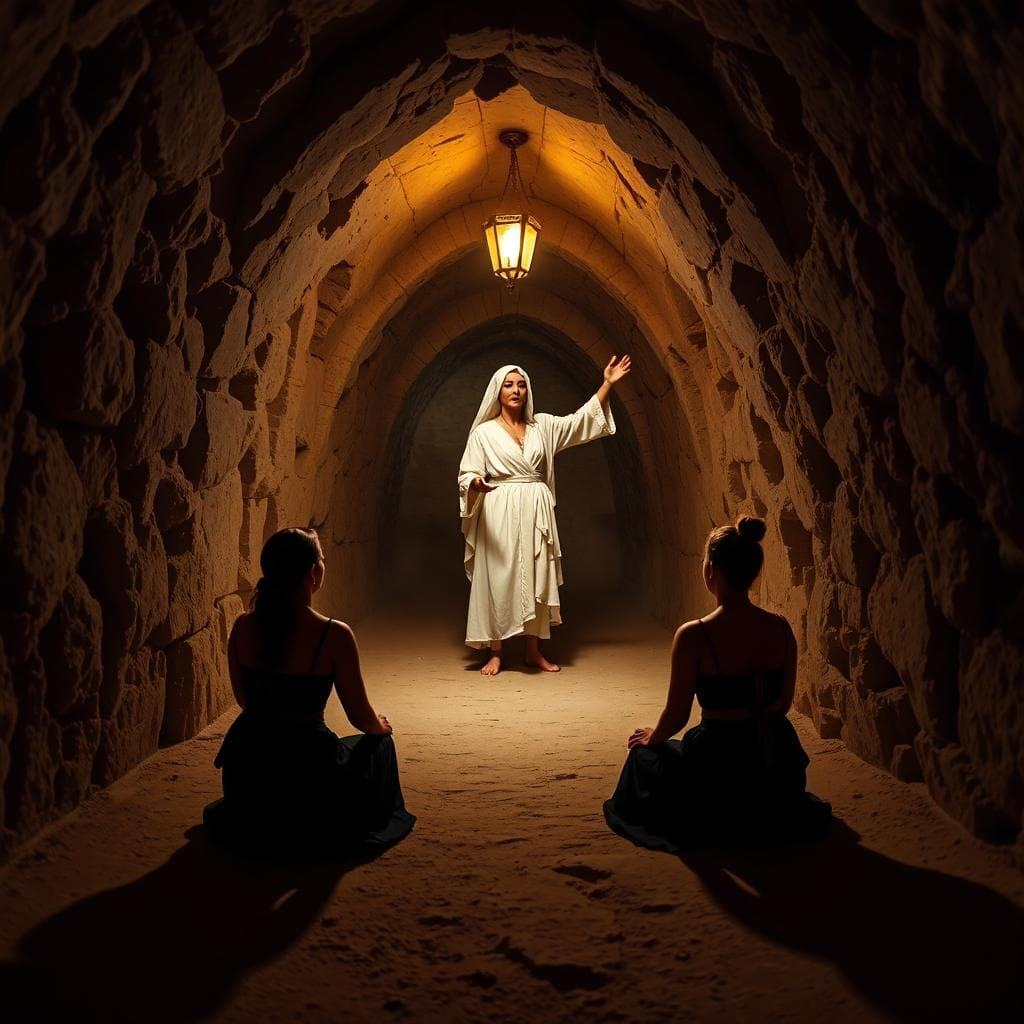Several Catacombs workers have reported a chilling phenomenon over the years: faint singing, echoing from deeper parts of the tunnels. It’s always distant, always just out of reach. The melodies vary—sometimes Gregorian chants, other times eerie humming with no clear source.
While skeptics dismiss these claims as acoustics playing tricks, those who have heard the singing say it’s impossible to forget. Some even claim the voices speak in old French, calling them by name. Real or imagined, the phenomenon has added another layer to the Catacombs’ already haunted reputation.
First Encounters A Song with No Source
One of the earliest modern reports came from a night-shift maintenance worker in the late 1990s. While inspecting water seepage near a sealed gallery, he heard a low, harmonic hum rising through the stone walls. The sound was slow, mournful, and rhythmically repetitive—similar to a church chant, but unlike any melody he recognized.
At first, he assumed it was some kind of echo from the surface, perhaps distant music or traffic vibrations. But as he moved deeper, the sound didn’t fade—it followed him. The closer he got to one tunnel in particular, the clearer it became. Male voices. Harmony. Latin words.
When he reached the gallery entrance, the singing stopped.
A Shared Experience
The phenomenon isn’t isolated. Over the years, multiple guides and security staff have independently described the same thing: melodic sounds with no clear origin, often heard when they were alone, especially near older, less trafficked sections of the ossuary.
One staff member recounted a particularly disturbing episode. While walking through a gallery in the 14th arrondissement sector, he heard two distinct voices—one male, one female—singing a call-and-response chant. He turned on his flashlight and called out, thinking perhaps cataphiles had snuck in. No one responded.
But the singing continued.
He recorded a brief audio clip on his phone, but when played back later, it was filled only with static. The memory stuck with him for years. He described it not just as strange, but deeply sad—like the voices weren’t singing to be heard, but to remember something lost.
Old French Whispers
Perhaps the most eerie detail comes from those who claim the voices speak—not just sing. A handful of workers have said they’ve heard their names whispered between the verses. The language used is often described as old French, the kind spoken centuries ago. Words that feel familiar, but not quite right. Phrases like:
“Tu es des nôtres maintenant…”
(You are one of us now…)
These moments are brief—mere seconds—and leave those who experience them shaken to the core.
Skepticism and Silence
Of course, not everyone believes. Acoustics in the Catacombs are notoriously tricky. The tunnels, with their curved ceilings and endless stone surfaces, carry and twist sound in unpredictable ways. A cough from one corner can echo like a shout across galleries. A dripping pipe can mimic footsteps. Could the singing simply be urban noise distorted underground?
Possibly. But the consistency of the stories—the specific locations, the recurring types of chants, the deeply personal details—make it harder to dismiss them all.
Interestingly, no official investigation has ever been conducted. Most incidents are brushed off, even discouraged from being discussed. Some believe this silence is deliberate, a way to prevent fueling superstition and panic among newer staff.
A Living Legend
Whether ghostly, psychological, or something stranger, The Singing from Below has taken on a life of its own. Among Parisian urban explorers and cataphiles, it’s one of the most enduring legends. They say if you wander alone long enough in the right places, you might catch a note, a hum, or a verse floating on the stale air.
Some claim it’s a remnant of the monks who once blessed the tunnels when they were consecrated. Others think the sounds belong to the countless souls buried there—singing as a form of release, or perhaps a warning.
Whatever the truth may be, those who have heard the Catacombs sing agree on one thing:
You don’t forget it.

